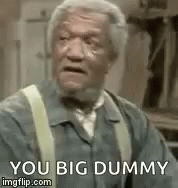EUGENE, OREGON - OCTOBER 12: Head coach Dan Lanning of the Oregon Ducks looks on before the game against the Ohio State Buckeyes at Autzen Stadium on October 12, 2024 in Eugene, Oregon. (Photo by Alika Jenner/Getty Images)
Alika Jenner/Getty Images
Oregon head coach Dan Lanning perfectly exploited a loophole in the NCAA's rulebook near the end of Saturday's 32-31 victory over Ohio State, but it reportedly could lead to changes down the line.
The Ducks called timeout and sent 12 defenders on the field with 10 seconds remaining and the Buckeyes driving into potential field-goal range. The result was an incomplete pass that took four seconds off the clock, so Lanning's team essentially traded five yards for less time on the clock.
Ohio State then ran out of time on the ensuing play when quarterback Will Howard scrambled. If the Buckeyes had an additional four seconds, they could have called timeout and attempted a game-winning field goal.
NCAA secretary rules editor Steve Shaw told Ross Dellenger of Yahoo Sports on Tuesday the Football Playing Rules Committee is actively "engaged" in examining the situation and could make changes even though the officiating crew handled it correctly given the current rules.
Lanning all but confirmed Oregon exploited the rule during an interview Monday when he said, per Dellenger, "we spend an inordinate amount of time on situations, and there are some situations that don't show up very often in college football, but this is one that obviously we have worked on. So you can see the result."
Still, there is something to be said about a penalty directly benefiting the team that was penalized. Had something like that been considered a dead-ball foul, the officials could have returned the game clock to 10 seconds while still rewarding Ohio State with the additional five yards.
It only adds to the frustration on the Buckeyes' side, as they were already in range for the game-winning field goal before a controversial offensive pass interference penalty knocked them back 15 yards.
That, along with Howard's poor decision to take off running as the clock ran out, ended up costing the team the game and an opportunity for a marquee road win.
As for the rule Oregon exploited, Dellenger explained that the rules committee has responded to past "fair play" situations by issuing interpretation bulletins for officials to follow during a season. Such bulletins are done in an effort to prevent coaches from exploiting rules.
An interpretation for this scenario would likely call for the officials to reset the game clock.
"We've had good dialogue on this play," Shaw said. "We've recognized the way it played out."
If nothing else, the entire ending could serve as a backdrop for a potential rematch in the Big Ten Championship Game.













 Play OSU in the Cotton Bowl thinking they had a chance.
Play OSU in the Cotton Bowl thinking they had a chance. 
